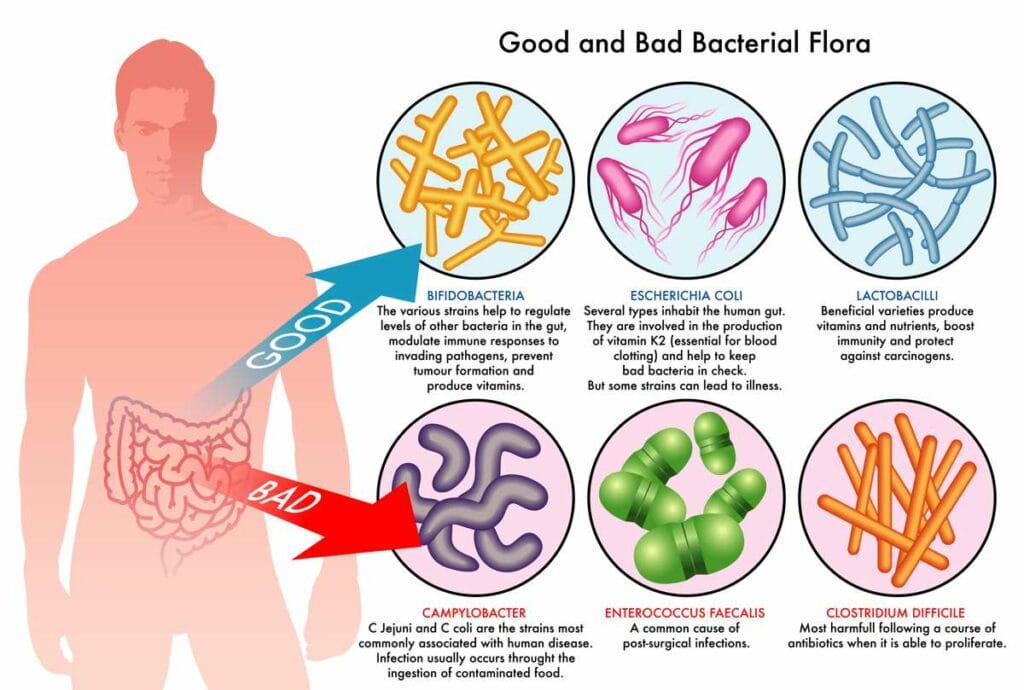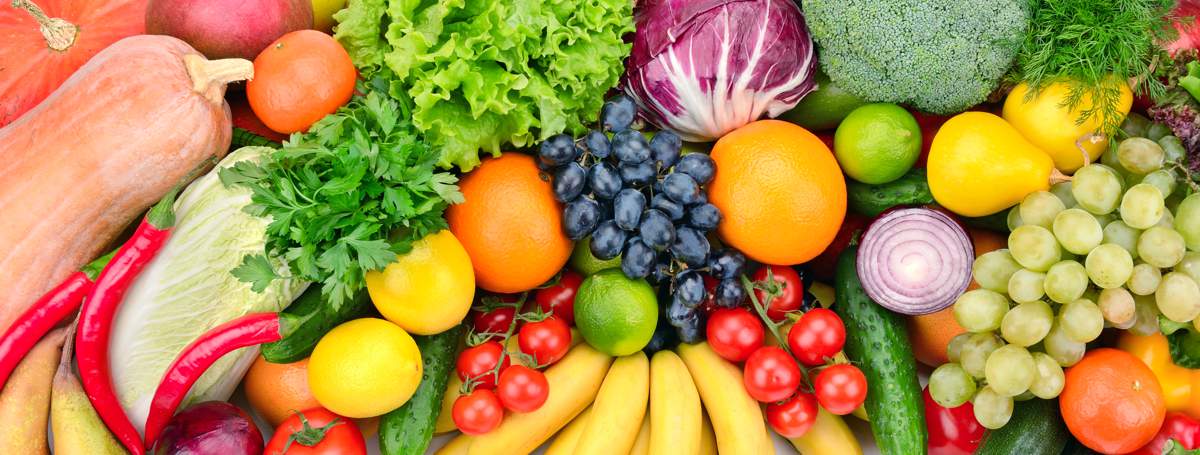Nowadays, we live in a world where we eat processed and high-energy dense foods rather than nutrient-dense foods that we need. The food we eat has increased the risk of non-communicable diseases globally, such as diabetes, metabolic syndrome, and hypertension. Some of society is making better choices and changing their view on health.
As a general rule we can help our body absorb vitamins by-
- Eating a variety of foods
- Improving our gut health
- Eating healthy fats
- Purchasing fresh vegetables
- Storing fruit and vegetables correctly
- Stop doing things that reduce our nutrient absorption eg drinking alcohol and smoking
We are focusing on choosing healthier, fresh foods high in essential nutrients. It helps understand how specific vitamins are absorbed, how to increase absorption, and what counteracts it.
How Can We Increase The Absorption Of Vitamins In Our Bodies?
Vitamins are essential for our health and body functions; they help us fight diseases and prevent communicable and non-communicable diseases. These include all our B vitamins, vitamin C, and fat soluble vitamins, which we can get through our diet. Some of these vitamins are absorbed in similar ways, while others have different paths of absorption.
It is good to know how to increase our vitamin intake, absorption and what can counteract it. Our bodies are designed to absorb the number of vitamins we need. Eat a diet of variety, fresh vegetables, stop smoking and drinking alcohol and speak to your doctor about a supplement if you are worried.
It is helpful to know what the nutrient absorption processes are and what influences the bioavailability of these vitamins to improve uptake in our bodies. Vitamins are either water soluble or fat soluble. They are absorbed in the first part of the gut after the stomach, the small intestine. An exception is vitamin B12 which is absorbed at the end of the small intestine, the terminal ileum.
Digestive enzymes are necessary in the small intestine for optimal absorption of vitamins as they break down the food and so release vitamins from the food.
So anything that impairs absorption in the small intestine such as celiac disease can lead to vitamin deficiencies.
Fat soluble vitamins will tend to be better absorbed with food so that there is some fat in the intestine being absorbed in which they can dissolve.
Vitamin naming can be confusing for instance, vitamin b is a collection of several vitamins and there is a vitamin B12 but no vitamin B9, B10 or B11. There is even now an unofficial naming of plant flavonoids as “vitamin P”.
Our nutritional status affects our quality of life, risk of disease, and mortality. There are certain factors that influence the absorption of vitamins in our body; these include our age, sex, health, and requirements based on current levels in our body.
A healthy person will absorb fewer vitamins than someone whose deficient. A woman who may be pregnant will absorb more vitamins than one who isn’t because she will require nutrients for her and her baby. Age also plays a role; the elderly absorb some vitamins less easily than younger individuals. Chronic diseases affecting one’s gut such as celiac disease and certain medications can interfere with the absorption of some vitamins.
It has been seen that the elderly are one of the largest groups in the world who suffer from nutrient deficiencies and malnutrition, which is then followed by children. This is not something to get fearful about but fascinating to note. Deficiencies are mainly seen in people who are not eating, eating a minimal diet, or who have a disease affecting their absorption of nutrients.
Vitamins have different body functions ranging from energy production, hormone production, improving our immune system, and bone health. They are also needed for the production of new red blood cells by the bone marrow and vitamin deficiency can lead to anemia. When this is due to vitamin B12 deficiency it is called pernicious anemia. It is good to understand what foods are rich in the different vitamins and how they are absorbed. Let’s look at the different ways to increase our body’s intake and absorption of these essential vitamins.
1. Eat A Variety Of Foods
It is vital to consume a variety of foods in our diet; this includes food from all the food groups. The main groups are macronutrients that include our proteins, fats, and carbohydrates, and the micronutrients including vitamins and minerals obtained mainly from fruit and vegetables. The macronutrients are the broad food groups where we can get all our micronutrients from.

We will obtain all the micronutrients we need in our diet if we eat a variety of food from each food group. For example, we should focus on eating vegetables and fruits of different colors; each color contains a higher amount of specific vitamins than others. It is good to focus on eating different protein sources such as meats, organ meats, seafood, legumes, and dairy products containing various vitamins.
What can be helpful is knowing what foods have a high number of each vitamin. Here is a list of the essential vitamins and what foods are high in them.
· There are high amounts of thiamine found in yeast and liver. Other foods containing vitamin B1 include cereals, nuts, grains, meats, and fortified foods.
· Riboflavin can be obtained from nuts, eggs, dairy products, yeast, meats, and soybeans. Other foods include some grains and vegetables, such as broccoli, mushrooms, Brussels sprouts, white rice, and wheat germ.
· Rich sources of niacin include meat, fish, yeast, eggs, dairy products, nuts, and beans. Vitamin B3 is also found in green leafy vegetables and enriched bread and cereals.
· High sources of pantothenic acid in animal products include eggs, liver, kidneys, skim milk, and salmon. Rich plant-based foods containing vitamin B5 include yeast, broccoli, avocado, and sweet potato
· Vitamin B6 can be found in liver, tuna, chicken, chickpeas, potatoes, whole grains, bananas, and nuts.
· Rich food sources of biotin include milk, egg yolk, liver, and some vegetables.
· Folate is high in liver, eggs, legumes, mushrooms, and green leafy vegetables.
· Rich food sources of Vitamin B12 include various meats, dairy products, eggs, yeast products, and fortified products such as soya milk and cereals.
· High food sources of vitamin C, which is essential for our immune system, include fruits, mainly citrus fruit, vegetables, and organ meats.
· Rich vitamin A food sources include organ meats, specifically liver, fatty fish, cheese, milk, and eggs. High plant-based sources are your yellow, red, orange, and dark green vegetables and fruit.
· High food sources of vitamin E include vegetables, nuts, fortified cereals, seeds, soybeans, wheat germ, green leafy vegetables, and vegetable oils like sunflower oil.
· Food sources that contain vitamin K include green leafy vegetables, vegetable oils, meats, dairy products, eggs, chickpeas, fruits, and cereals.
As you can see, all these vitamins are found in many different foods that come from three different food groups. Diets where specific food groups are cut out, such as carbohydrates, should be avoided as it can affect your nutrient absorption and intake. This is the reason why a diet of variety is so vital in our lives.
2. Include Healthy Fats In Your Diet
Fats are essential for the absorption of fat-soluble vitamins, namely vitamin A, E, D, and K. Adding a healthy oil to your food will improve the absorption of eight different micronutrients. These nutrients include four carotenoids, namely lutein and lycopene, alpha and beta carotene, vitamin K, two forms of vitamin E and Vitamin A.
These vitamins have many functions in our bodies, and deficiencies in them have been linked to diseases such as cancer, diabetes, and immune system disorders. These vitamins are absorbed in a similar way to fats and need fats to promote absorption through the intestinal wall.
It is seen that the amount of oil consumed at a meal is proportional to the number of nutrients absorbed. A research study found that the maximum absorption of nutrients when 32g of oil is added to a meal. For example, you can add about two tablespoons of salad dressing to your salad.
An important aspect to consider is making sure you consume healthy fats instead of unhealthy ones. Healthy fats are essential as they help prevent specific diseases, whereas unhealthy fats can increase the risk of these diseases. Healthy fats include vegetable fats such as olive oil, sunflower oil, avocado oil, canola oil, nuts, and seeds. Unhealthy fats that should be avoided include fats on meats, high-fat dairy products, palm oil, and coconut oil.
3. Importance Of Our Gut Health
The human colonic microbiota is extensive, with over 1 000 species of bacteria identified. Each individual has about 100 trillion microorganisms within our gut, these are vital for our body functions, vitamin production and absorption, and immune system. The good bacteria found in our intestines have a crucial role in synthesizing vitamin K and some B vitamins.

Our good gut bacteria synthesize specific amounts of vitamins, while the rest are obtained through our diet. Some bacteria make B vitamins, some that don’t, and some that use the B vitamins for their own needs. There may be a bit of competition between the human body and the bacteria for these vitamins.
It is crucial to make sure your gut is healthy; this can be done through our diet and lifestyle. It can be helpful to eat food rich in probiotics and prebiotics; probiotics are the good bacteria we get from yogurt, kefir, fermented sauerkraut, and kombucha. Prebiotics are food needed for probiotics to survive and stay healthy; this includes fiber-rich foods such as high fiber cereals, whole wheat bread, fruit, and vegetables.
If you are struggling with promoting gut health and improving your gut bacteria, you can also take probiotic tablets. This can help replace and add more healthy bacteria to your body, which will promote vitamin production and absorption.
It is important do use probiotics and prebiotics in moderation, as you can change the make up of your natural microbiome too much. This can lead to you feeling ill, may make it more difficult to lose weight and lower your mood. The microbiome is also implicated in aging so if you over do it with probiotics you could alter the rate at which you age.
4. Method Of Storing And Cooking Food
The way food high in vitamins is handled influences their nutrient content; if it is not done well, the nutrients can deteriorate. This includes the transportation from farm to home, how these foods are stored, cooked, and processed. We can influence some of these methods, while others are much harder and out of our hands. Let’s look at vegetables when considering how the vitamin content in food is influenced.
Transportation: The transportation of vegetables from the farm to factories and shops is out of our control, unfortunately. Transportation to your household is the only control you will have; you can make sure they get home without damage. We can change if we grow our own vegetables at home as transport will not be needed.
A vegetable garden is a good way to ensure you are getting the highest concentration of vitamins. Once vegetables are picked, their nutrient content starts to deteriorate as time goes by. Suppose you cannot grow your own vegetables; in that case, the best thing to do is purchase vegetables from farm stalls, get freshly picked or new stock of vegetables as it comes into the store.
Storage: Once you get your vegetables home, try to eat them as soon as possible, the less time it takes to eat them, the more vitamins they will contain. If you can’t, eat them straight away, store them in the refrigerator or freezer as the cool temperature will help reduce the degradation of the nutrients and retain as many nutrients as possible
Cooking methods: Cooking food can either increase or decrease the availability of vitamins present; this is dependent on the food eaten and how it is cooked. There are a few tips that can help retain as many vitamins as possible. These include keeping skins of vegetables and fruits on when cooking, avoid reheating too much, avoid overcooking, extremely high temperatures, and cooking for more than two hours.
Cut your vegetables into bigger chunks when cooking and using cooking methods such as steaming, and microwaving. It is best to avoid boiling your vegetables unless you use the water due to vitamins leaching into the liquid. Avoid using baking soda, which is usually used because it helps retain the color of the vegetables as it can destroy the vitamins.
5. Molecules Reducing The Absorption Of Others
Caffeine: Coffee and tea are natural diuretics; they increase the water excreted from the body, leading to increased vitamin excretion when taken with foods high in vitamins. The caffeine found in these drinks can also inhibit vitamin absorption in the body, which has been explicitly seen with vitamin D. To avoid this from happening, it is best not to drink caffeinated drinks with meals or close to meals. Drink coffee, tea, and other caffeine drinks at least one hour before or after a meal.
Alcohol: Alcohol consumption can affect the intake and absorption of vitamins in the body; this is mainly seen when there is an excess of alcohol consumed. An increased alcohol intake can reduce food consumption needed to provide the necessary nutrients to stay healthy. Alcohol can also inhibit the absorption of some vitamins resulting in deficiencies. Also, storage and utilization of vitamins can be affected. Vitamin B1 (Thiamine) deficiency is a particular problem and leads to brain damage.

It reduces the absorption of fat into the blood, which leads to an interference in the absorption of fat-soluble vitamins. Protein digestion is impaired due to alcohol, affecting the uptake of amino acids and vitamins found in these protein-rich foods.
Many alcoholics suffer from vitamin and mineral deficiencies due to their interactions with these nutrients. It is essential to reduce alcohol intake to the recommended dose per day or to cut it out of one’s diet to minimize nutrient deficiencies in the body.
Smoking: It has been found that smoking, whether it is cigarettes or tobacco, can reduce the absorption of some nutrients. Most smokers have low vitamin C and B-carotene levels; B-carotene converts to vitamin A in our bodies. Many other B vitamins are at suboptimal levels in smoker’s blood due to these nutrient interactions.
Smoking increases the number of free radicals formed in the body; these cause cell damage and can lead to diseases such as cancer. Vitamins that function as antioxidants reducing free radicals circulating the body, such as vitamin E, C, and B-carotene, are lower in smokers.
These low vitamin levels can be caused by an interference in the absorption due to chemicals from cigarettes and tobacco. A reduced intake of food also causes it as cigarettes suppress people’s appetites. The best way to combat these possible deficiencies is to stop smoking. There has been debate about increasing the intake of certain foods high in these vitamins, specifically vitamins C, although this is not entirely ideal. A nutritional supplement could even be considered for some smokers that struggle to consume the right amount of nutrient-rich foods.
6. Nutrient Interactions With Medications And Other Foods
There are some medications that reduce the absorption of specific vitamins in the body; it is good to be aware of these to reduce the risk of vitamin deficiencies. Let’s take a look at which medications these are.
· Antacids are used to reduce acid production and secretion in the stomach for reflux and heartburn. These medications interact with vitamin B12 and vitamin D, which may need to be supplemented.
· Antibiotics are needed to fight certain infections; they are not usually taken for an extended period. Still, if so, a vitamin K and B vitamin supplement may be required.
· Antidepressants can reduce folic acid in the blood; a supplement can be considered to help prevent a deficiency.
· Antiepileptic’s, which are needed for individuals who have epilepsy, may require a vitamin B12 and vitamin D supplement. Be careful with folic acid supplements as they may counteract with antiepileptic medication.
· Antipsychotics are used for schizophrenia. Behavioral conditions may lead to vitamin C and B vitamin deficiencies if a supplement is not taken.
· Birth control medications can reduce folic acid and vitamin B6 concentrations in the body; a supplement can improve these concentrations.
· Cholesterol–lowering medications may reduce our intake of vitamin D; supplementation of this vitamin will be needed.
· Diabetic medications can cause a depletion in folic acid and vitamin B12, increasing the need for supplementation.
· Diuretics are used in specific conditions; supplementation may be required for folic acid due to increased secretion.
· Hormone replacement therapy, specifically estrogen, is needed for some women going through menopause; supplementation for folic acid, vitamin B6, and vitamin B12 is required to reduce deficiencies.
It is good to note which medications can affect the absorption of specific vitamins; before taking a supplement, it is crucial to speak to your doctor first. This is because some vitamins and minerals can counteract some of these medications.
7. Nutrient supplements
Usually, a question that often comes up when talking about vitamins and minerals is whether taking a nutritional supplement is a good idea and will improve absorption. Nutrient or vitamin supplements are in general not harmful to take although there has been evidence that beta-carotene supplementation in smokers may increase the incidence of lung cancer. Vitamin E supplementation has also been linked to a higher risk of prostate cancer but a lower risk of Parkinsons disease. It is just preferred to get all your nutrients through your diet. Indeed a recent study showed that those who get their vitamins through food had a lower mortality whereas those who took a multivitamin did not. It is not difficult or impossible to get the nutrients needed from the food we eat.
A supplement can be helpful in certain situations, especially in the elderly as the body’s absorption of vitamins declines with age, or if your diet does not include a variety of fresh fruit and vegetables.
A supplement could be vital if you have a chronic disease affecting absorption or one which increases vitamin requirements. If you are pregnant you may well need prenatal vitamins, your obstetrician will advise you. If you are malnourished, or eating a diet that is not varied, you may also need one.
Your blood work up will sometimes highlight vitamin b12 deficiency, folate deficiency or the need for an iron supplement. A vitamin d level may be checked, vitamin d deficiency diagnosed and lead to vitamin D3 supplementation. Other vitamins are less a part of routine testing.
Calcium levels are sometimes checked in a routine blood workup and you may need calcium supplements eg calcium citrate. Magnesium a sister ion to calcium will also be checked in some circumstances but will rarely need replacement.
If you are a bit worried about whether you are getting all the vitamins you need through your diet, it would be good to contact your doctor or dietitian and ask for advice on the best nutritional supplement for your situation. Before adding a nutritional supplement, look at your diet and improve it where you can to provide your body with what it needs. This way, you will get all your vitamins naturally and give your additional body nutrients such as fiber, probiotics, antioxidants, and so many more.
Here is a table summarizing the different aspects affecting vitamin absorption, some increasing and others increasing it.
| Tips | How it affects absorption | |
| Variety of foods | Eating a diversity of foods from the different food groups will ensure you consume the necessary vitamins needed. | Proteins, Carbohydrates and Fats. Different colored fruit and vegetables. |
| Eating fats in your diet | Fats will help with the absorption of fat-soluble vitamins. | Vitamin A, D, E, and K.Eat healthy fats to improve your health, such as vegetable oils. |
| Healthy gut | A healthy gut will promote good bacteria health, which will improve the production and absorption of vitamins. | Bacteria help produce some B vitamins and vitamins K.Eat foods rich in probiotics and prebiotics. Probiotics: yogurt, saurkraut, and kombucha. Prebiotics: high fiber cereals, bread, and grains, fruit, and vegetables.Take probiotics tablets if needed. |
| Getting fresh food | The time it takes to transport food from the farm to your plate influences its vitamin content. | Grow your own vegetable garden. Buy vegetables and fruit from farms. Buy the freshest foods. Eat the food soon |
| Storage of food | It is best to store your vegetables and fruit at cool temperatures to retain vitamins. | Refrigerate Freeze |
| Cooking method used | Vegetables should not be heated to too high of temperatures and should be cooked for a short period. The way they are cooked also affects their vitamin content. | Don’t cook for longer than 2 hours. Steam, bake or microwave foods. If boiled, then use the water. Keep the skin on the vegetables |
| Caffeine | Reduce caffeine intake around meals. | Drink tea, coffee, and caffeinated drinks an hour before or after a meal |
| Alcohol | Alcohol can reduce your intake of nutrient foods and interfere with the absorption of vitamins | Stop the consumption of alcohol. Reduce alcohol consumption to one drink for females and two drinks for males a day |
| Smoking | Smoking interferes with nutrients in the body | Stop smoking completely. A nutritional supplement can be taken when trying to stop, or if you can’t stop, although this is not ideal. |
| Medications | Some medications interact with vitamins in the body | Speak to your doctor about specific vitamins you may need with certain medications |
| Nutritional supplement | This can be handy if you need one; if you are not sure, contact your doctor. | Nutritional supplements can be helpful in specific chronic conditions that interact with vitamin absorption. |
Conclusion
There is no need to worry about absorbing the required amounts of vitamins in your body unless your diet lacks foods containing these vitamins. Unless you have a chronic disease affecting absorption or other conditions, when a supplement may be needed. Your body is designed to absorb the number of nutrients it requires to function and stay healthy.
It can help to know what foods are high in specific vitamins to ensure your diet includes all the foods needed. This can also be helpful to note if you have an increased risk of a deficiency or are deficient in specific vitamins.
The above tips are beneficial in increasing your intake and absorption of all nutrients in your body. Suppose you are still concerned about your absorption of specific vitamins. In that case, it is good to see your doctor so they can do further testing and give you recommendations.
Related Posts
Can you take kombucha with vitamins?

References
Bioavailability of Fat-Soluble Vitamins and Phytochemicals in Humans: Effects of Genetic Variation https://www.annualreviews.org/doi/full/10.1146/annurev-nutr-082117-051628
Fat-Soluble Vitamins https://www.ncbi.nlm.nih.gov/books/NBK218749/
Closer to clarity on the effect of lipid consumption on fat-soluble vitamin and carotenoid absorption: do we need to close in further?https://www.ncbi.nlm.nih.gov/pmc/articles/PMC5611788/
Fat-Soluble Vitamins: Clinical Indications and Current Challenges for Chromatographic Measurement https://www.ncbi.nlm.nih.gov/pmc/articles/PMC4810759/
Bioavailability of micronutrients obtained from supplements and food: A survey and case study of the polyphenols https://journals.sagepub.com/doi/full/10.1177/2397847317696366
A spoonful of oil: Fats and oils help to unlock full nutritional benefits of veggies, study suggests https://www.sciencedaily.com/releases/2017/10/171009124026.htm
Metabolism of Dietary and Microbial Vitamin B Family in the Regulation of Host Immunity https://www.frontiersin.org/articles/10.3389/fnut.2019.00048/full
Gut microbiota functions: metabolism of nutrients and other food components https://www.ncbi.nlm.nih.gov/pmc/articles/PMC5847071/
Effects of Gut Microbes on Nutrient Absorption and Energy Regulation https://www.ncbi.nlm.nih.gov/pmc/articles/PMC3601187/
Contributions of Intestinal Bacteria to Nutrition and Metabolism in the Critically Ill https://www.ncbi.nlm.nih.gov/pmc/articles/PMC3144392/
Intestinal absorption of water-soluble vitamins in health and disease https://pubmed.ncbi.nlm.nih.gov/21749321/
Effect of different cooking methods on the content of vitamins and true retention in selected vegetables https://www.ncbi.nlm.nih.gov/pmc/articles/PMC6049644/
Does Coffee Kill the Benefits of Vitamins? https://www.livescience.com/9821-coffee-kill-benefits-vitamins.html#:~:text=Any%20beverage%20or%20food%20containing,their%20excretion%20from%20the%20body.
Tea and coffee consumption in relation to vitamin D and calcium levels in Saudi adolescents https://www.ncbi.nlm.nih.gov/pmc/articles/PMC3478213/
National Institute on Alcohol Abuse and Alcoholism No. 22 PH 346 October 1993 https://pubs.niaaa.nih.gov/publications/aa22.htm#:~:text=For%20example%2C%20alcohol%20inhibits%20fat,of%20the%20bones%20(6).
Cigarette smoking-nutritional implications https://pubmed.ncbi.nlm.nih.gov/1784736/
Common Drug Classes, Drug-Nutrient Depletions, & Drug-Nutrient Interactions https://www.aafp.org/dam/AAFP/documents/about_us/sponsored_resources/Nature%20Made%20Handout.pdf



